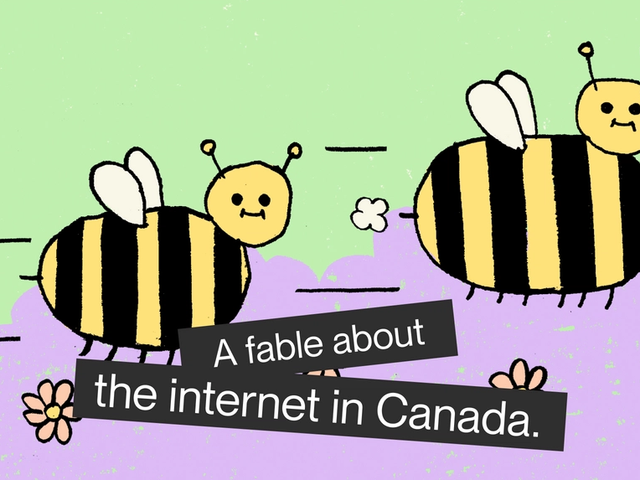
A long, long time ago (sometime in the 19th century), in a very, very distant world (Canada), there was an enchanted forest full of kind animals that lived in harmony with each other and their forest.
Now a few of these animals may have surprised you. For there were camels (!), owls, groundhogs, beautiful butterflies and busily buzzing bees. One day, the busily buzzing bees got together and met with the Generous Cougar (the Government of Canada) and were gifted a very unique opportunity.
"Our forest needs honey," the Generous Cougar told them, "and I want you to split the task of making sure all the animals in the forest can access it."
After some discussion, the busily buzzing bees got down to work. They spent days and nights drawing lines and defining the spaces between the trees and streams until they finally had something interesting. The forest was divided into sections, each hive getting a section all its own. But, in order to keep their section, they had to make sure that each of the animals living there could access their honey. In exchange for all the hard work the industrious bees put into creating their networks of honey, the bees were free to ask the animals of the forest for as much or as little pollen as they liked for their honey.
“What joy! I won’t be stung anymore!” exclaimed the bear.
"I'm finally going to be able to get my paws on some fresh honey," laughed the fox.
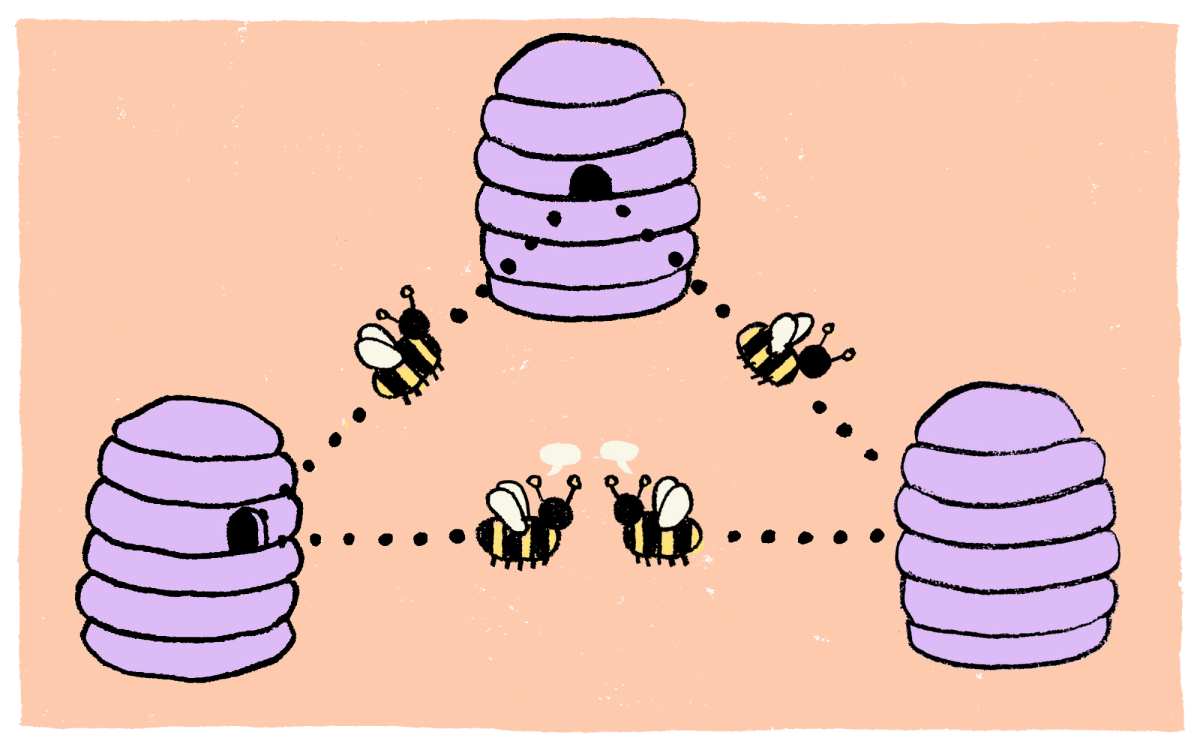
—
By now you’re probably wondering what the heck we’re talking about. Well, we decided to have a bit of fun telling a complicated story: how the internet in Canada came to be. Why it is the way it is and what role the big telecos (aka the bees) played in its inception. Oh and the honey in this version of events represents Canada’s telephone service. The internet hasn’t been invented yet. But, it’s coming, you’ll see.
Back to our fable. Or allegory. I don't know, I studied communications, not literature.
—
The busily buzzing bees had been entrusted with the enormous task of providing honey to all the animals of the forest—so they were busy indeed. But, in exchange for their hard work, they had been given a monopoly over each section of the enchanted forest. A pretty good deal. So, they rolled up their tiny bee sleeves and got to work.
For years and years, the bees, with the help of the Generous Cougar (because, yes, the Government of Canada was very instrumental in building the infrastructure), adorned their section of forest with a system of hives. Sturdy and extensive, their hives connected every den, nest, lair, cave, etc. The Courageous Cougar's plan had worked. For generations of rabbits (and half an elephantine generation), the enchanted forest benefited from the easy access to the bees’ honey and in exchange they happily handed over a few fruits here and a few flowers there.
In time, the bees—already very wealthy indeed—heard rumours of something new. Something that would change the enchanted forest forever: royal jelly (aka the internet). Even tastier than honey, and far more versatile (you just can’t get on Facebook with a good old-fashioned landline), royal jelly quickly surpassed honey to become even more popular, easily surpassing it in terms of sales (and profits!).
The busily buzzing bees just kept rubbing their tiny little bee paws together. They couldn’t believe their luck!
Then, one quiet day not so long ago (in 1998), the Generous Cougar's cousin, the Clever Royal Tiger, who happens to be very Charming (that's the CRTC) noticed that the bees were no longer working as hard as they used to. The honey distribution system was mature, and the hives for royal jelly were progressing at a good pace. The bees continued to benefit from all the other animals' payments, increasing them every so often, just because. The Clever Royal Tiger, who happens to be very Charming suspected that they’d even gained a few grams around the waist by resting so much on their laurels.
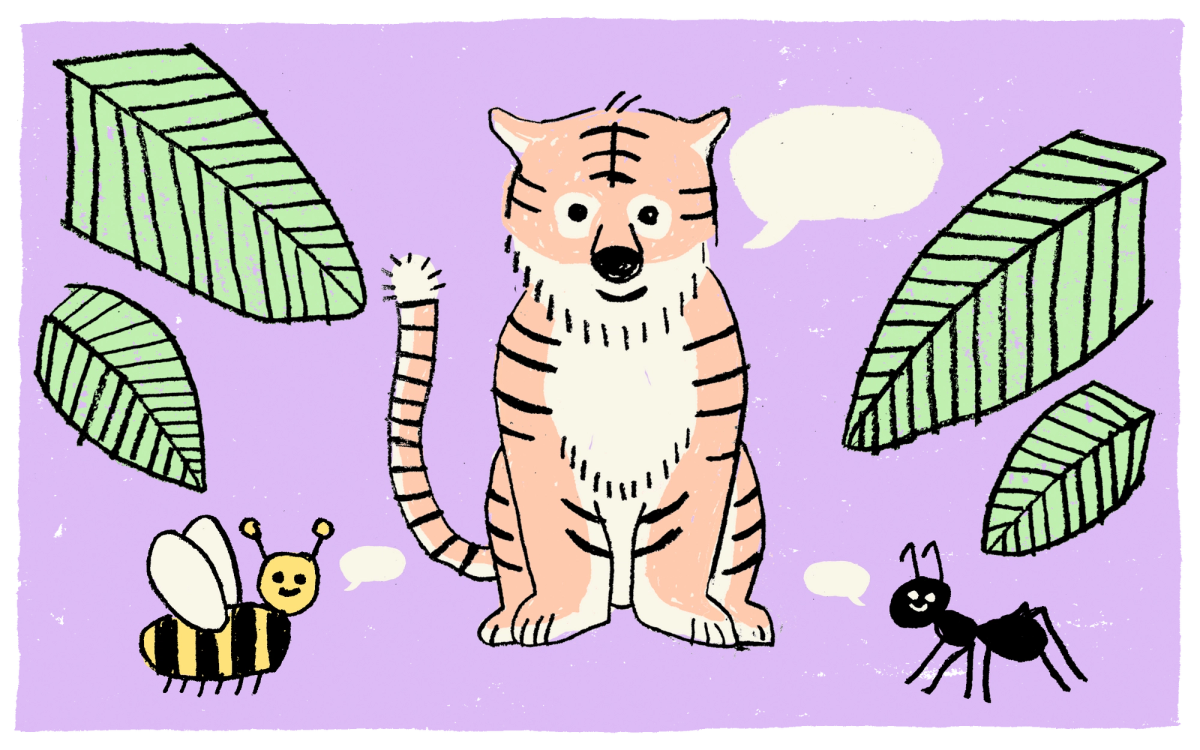
Seeing this, the Clever Royal Tiger, who happens to be very Charming decided to do something about it. From the tippy top of the highest rock in the now slightly less enchanted forest, he called out to the slightly less busy bees:
“You must now give the ants access to your hives.”
“But why?” Asked the big bees. “Everyone has access to honey thanks to us! We should be rewarded for our efforts!”
“Certainly,” replied the Clever Royal Tiger, who happens to be very Charming, “but it is not right that you alone can sell to all the animals of the forest. In fact, the monopoly established by my cousin the Generous Cougar has seen its final day. The Ever Enchanted Forest across the pond (Europe) seems to be doing very well since they gave the ants access to their hives. A little competition might just lead to innovation and fairer prices.”
Reluctantly, the bees cut little gates into the sides of their hives so that the ants could make their way to the pools of honey and threads of royal jelly. Though, as we all know, honey, that was once so popular, was already losing its sweet appeal. And, at every gate in every hive, every ant had to pay to access the sweet treats inside. In other words, they were charged a tariff.
The ants, ardent workers as they are, worked together, dedicating themselves to supplying the animals of the forest. Hundreds of little workers poured into the forest, bringing with them royal jelly at a fairer price.
“Finally, some choice!” hooted the owl.
"I won't have to do business with those bloated bees anymore!" croaked the toad.
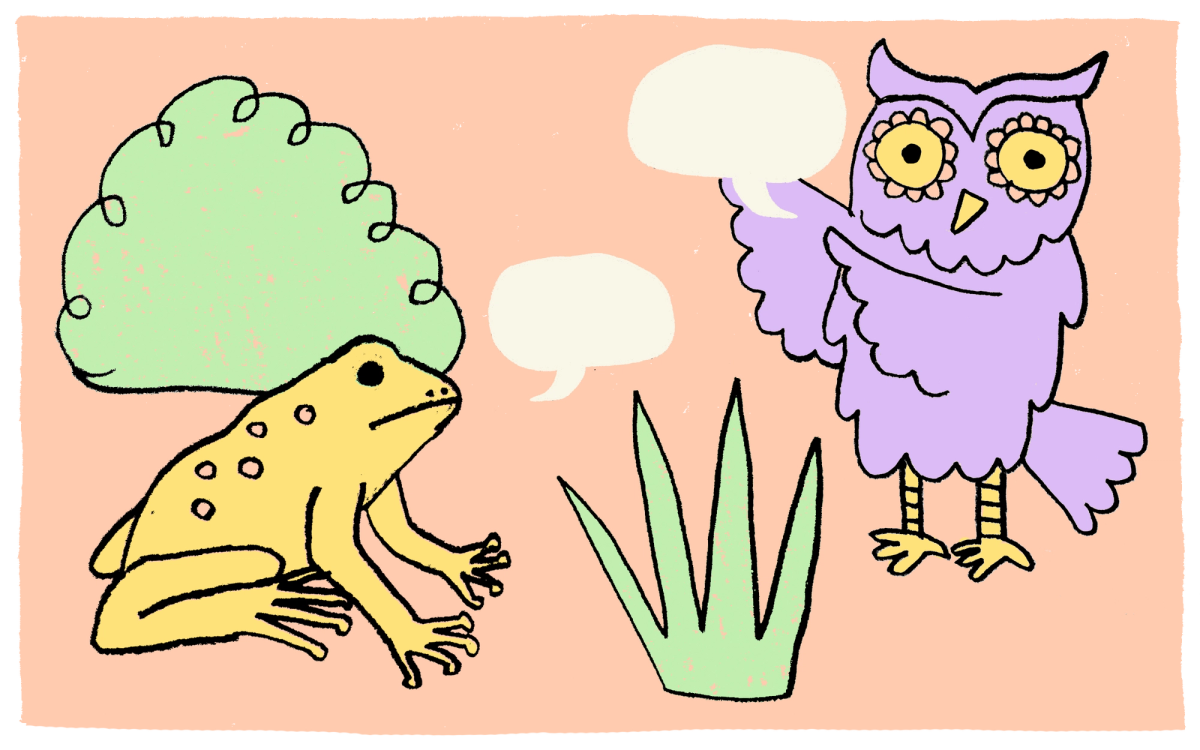
—
Okay okay, are we maybe giving ourselves a small pat on the back by calling ourselves “ardent worker ants”? Possibly. But it's still the reality. Independent internet service providers that fall under the TPIA rules and pay to use the infrastructure maintained by the big telcos have changed the royal jelly (lol, internet) industry in Canada. History has taught us that competition is an important part of the telecommunications industry. It helps prevent those that control the majority of the market from getting away with doing the bare minimum. And we think that’s a good thing.
—
This new, shared reality suited the enchanted forest just fine for quite a few years. Sure, the circumference of the bloated bees continued to swell at the same rate as the price of their honey, royal jelly and tariffs they charged the ants. But, as was the way with the honey, the animals of the forest could no longer live without their royal jelly. Royal jelly, once an exclusive comfort, had become important, necessary to the life of the forest and the well-being of the many animals. There was, of course, the odd woodpecker and frog who decided not to partake, but they were the exception to the rule.
As the years carried on, the Clever Royal Tiger, who happens to be very Charming would from time to time (as he did in 2006 and in 2019), stop by and visit the bloated bees. Some years, the Clever Royal Tiger, who happens to be very Charming was charmed by the bees and allowed them to do as they pleased—much to the dismay of the ants. Other times, the Clever Royal Tiger, who happens to be very Charming favoured the ardent ants and implemented new rules to encourage them to keep working. (We’re talking about decisions made by the CRTC.)
"It's as if our Clever Royal Tiger, who happens to be very Charming changes personalities with the weather!” said the moose to the wolf.
“Indeed,” replied the wolf. “It's almost like it's a new tiger every time!” (And the wolf was right: a new CRTC Chairperson is appointed by the federal cabinet every 5 years or so.)
Luckily for the animals, the ants continued their mission (yes, we’re still talking about the internet) despite the willy-nilly ways of the Clever Royal Tiger, who happens to be very Charming. And thanks to their large numbers, the ants continued to give the animals of the forest something they desperately needed: the opportunity to choose the royal jelly provider that pleased them the most. Little by little, the prices fell. But not enough. Prices remained high, as the ants—regardless of how hard they worked—still had to pay the tariffs at the gates to the hives. (For example, oxio pays our infrastructure partners $36 per month in network fees for each and every 30 Mbit/s plan. And the tariffs go up from there.)
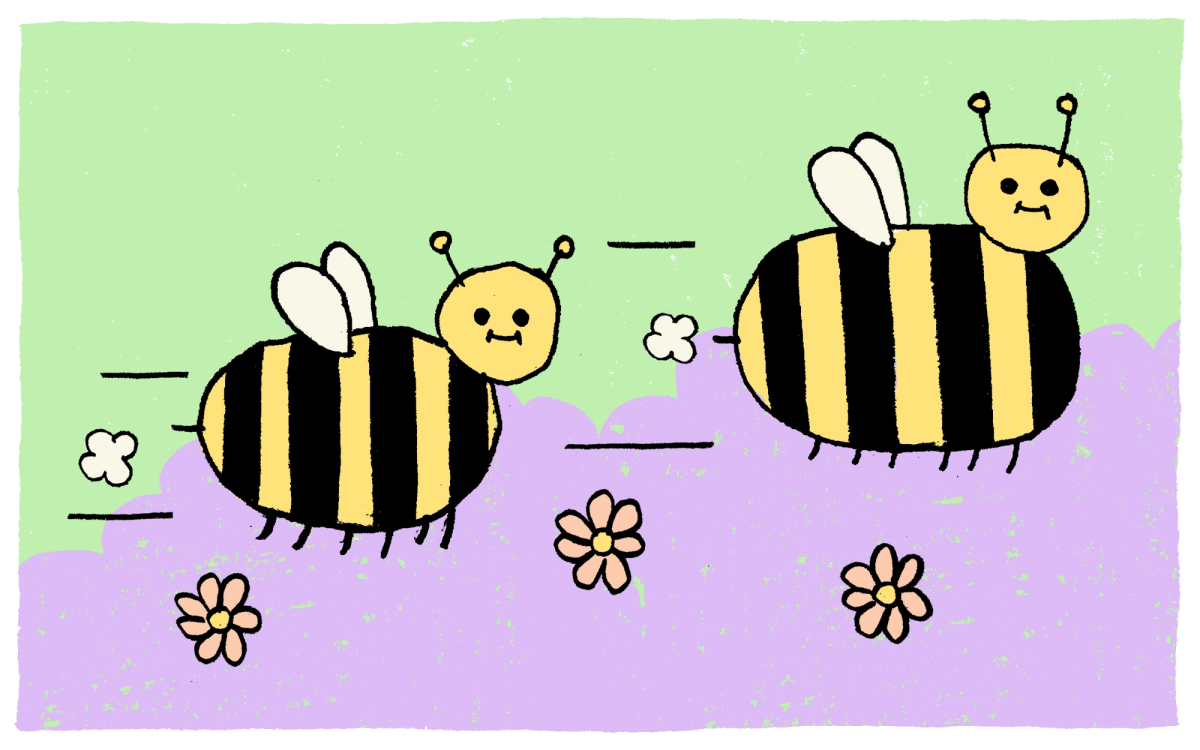
—
That brings us to today. Fables all have a moral and ours is that, well, our story isn’t over. Normally, a fable has a conclusion (or, at least, a: "and they lived happily ever after"), but our tale is still being written.
On the one hand, we have a bleak future where the bloated bees just keep getting bigger. On the other hand, there is hope and enough royal jelly…or internet for everyone.
We’ll let you decide which is which.
—
There’s this ending:
In his ambivalent wisdom, the Clever Royal Tiger, who happens to be very Charming befriends one of the bloated bees. This union allows the bees to carry on doing what they’ve always done. Slowly, but surely, the competition disappears as the ants give up or are bought up by the bees until the forest is left without any ants at all—and very high prices.
Or there’s this ending:
In his ambivalent wisdom, the Clever Royal Tiger, who happens to be very Charming realizes the ants are doing a damn good job and decides to lend a hand. He orders the bees to reduce the tariff to a fair and sustainable amount. This new tariff leads to a drop in the price of access to royal jelly. The bees are then faced with a choice: either they continue to sell royal jelly at lower prices or they leave the selling to the ants and concentrate instead on improving and maintaining the system of hives. And don’t worry, they’d still be making a huge profit from the fair tariffs they charge the ants.
—
So many thank yous to Hiller Goodspeed for the adorable illustrations. The article fable was lovingly written by Danilo (seriously, Danilo had a lot of fun writing this) and adapted by David (I had just as much fun adapting it). Shoutout to Francis (oxio’s CTO and co-founder) for all his random internet knowledge.







